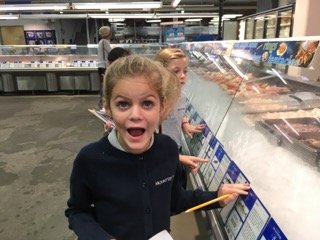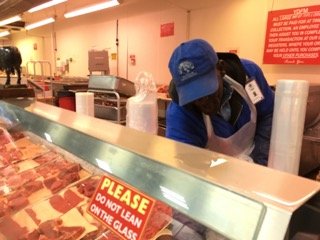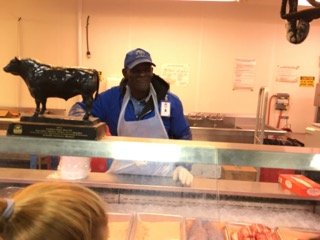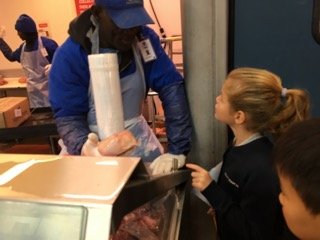Our classroom walls do not set the boundaries for learning. At Mount Vernon, we believe that expeditionary learning beyond our everyday spaces allows our students the opportunity to explore content in authentic environments to better understand how and why.
 Recently, science teacher Eileen Fennelly escorted the second grade to the Dekalb Farmers Market. They went to look for nutritious foods from around the world. Each small group traveled around the market to investigate how far different spices, produce, and fish had come to be sold there. Using their world maps to locate the countries from where the food originated, they discovered Pink Himalayan Salt from Pakistan, Kiwi from New Zealand, and Green Papaya from Chile, among many other things.
Recently, science teacher Eileen Fennelly escorted the second grade to the Dekalb Farmers Market. They went to look for nutritious foods from around the world. Each small group traveled around the market to investigate how far different spices, produce, and fish had come to be sold there. Using their world maps to locate the countries from where the food originated, they discovered Pink Himalayan Salt from Pakistan, Kiwi from New Zealand, and Green Papaya from Chile, among many other things.
“I did not know fish were this big! I never caught one this big. How do you get a fish from Greece to Atlanta and keep it fresh?”
Students were surprised to see unusual meat selections, such as brains, hearts, kidneys, livers and huge tongues.
“My grocery store does not have any of this! People eat this? What is a kidney? How do you cook a brain?”
People behind the counter gladly answered the students’ questions.
“How do you make that brain soup? Why would people eat that? Mrs. Fennelly, can we research new recipes, come back to get the ingredients and cook? We should try new things.”



FUTURE EXPEDITIONS
Grade two will be hiking the Chattahoochee every Thursday morning to continue the work they began as first graders. They asked to return to the river to see the water and the birds they observed when visiting last spring. Just as they watched the canopy fill in a few seasons ago, they can watch the leaves drop this fall, and see how it affects the animals’ habitats.
First grade is studying and comparing the structure of plants and mammals. They have started Bush bean plants that are now in the garden and growing. Having learned about transpiration and translocation in plants, they will extend this to trees. Most apple trees look the same and have the same structure, but the apples can all be different! In a few weeks, the class will explore apple orchards in Ellijay.


